You want to produce the best podcasts for your clients - that’s a given. But if you want to lead the conversation, you need to know who’s already talking. That starts when you research competitor podcasts to uncover trends and gaps in the podcast landscape around your client's specialty or industry.
This article explains how podcast producers and agencies like Voxtopica use Rephonic for podcast research during three crucial stages:
- Developing a podcast
- Refining a podcast
- Growing a podcast
As Richard Fawal of of Voxtopica, puts it;
"Our old research process was very, very difficult and almost entirely us trying to dig through Apple Podcasts. It was a lot of work...the fact that Rephonic pulls it all together for us makes it incredibly valuable."
Table of Contents
How podcast producers develop podcasts with Rephonic
- Research the competitive landscape using Rephonic's 3D graph tool
- View listener demographics for competitor shows
- Explore competitor content strategies
Research the competitive landscape with Rephonic's 3D graph tool
In podcasting, the competitive landscape is the overall picture of who else is talking to your target audiences. It helps you see how they're positioned, what they’re covering and where you might find opportunities to do it better or differently.
Rephonic's graph tool visualizes that landscape, displaying related podcasts from the Apple Podcasts "Listeners Also Subscribe To" lists.
The interactive 3D graph helps you quickly find shows with a similar audience to your client's podcast (icons close to the center).
Understanding what the competition's doing is an excellent start. However, the 3D graph digs deeper, showing your client's neighbors' neighbors, too, and it's worth tapping into these. Those icons on the outer levels can open the door to fresh topics, unexpected guest ideas and angles your client hasn't explored before.
"Rephonic helps us figure out what people who are listening to our podcasts are also listening to. It helps us understand the neighborhood, the ecosystem around the shows that we're producing, so that we can refine the content to appeal to the audience we're after more effectively."
Richard Fawal, Voxtopica Case Study (YouTube)
View listener demographics for competitor shows
Once you’ve spotted an interesting competitor, your next step is to dig into its audience demographics for insights into who listens and what they think of the show. Rephonic puts the information at your fingertips.
- Tap an icon in the 3D graph to bring up the link to the podcast page.
- Open the link to find the Overview page showing listener numbers, audience engagement, recent topics and more.
- Select the Audience tab to see listener demographics—who listens, the audience’s primary locations, likely age range, professions, etc.
- Check the podcast's Feedback tab for listener reviews.
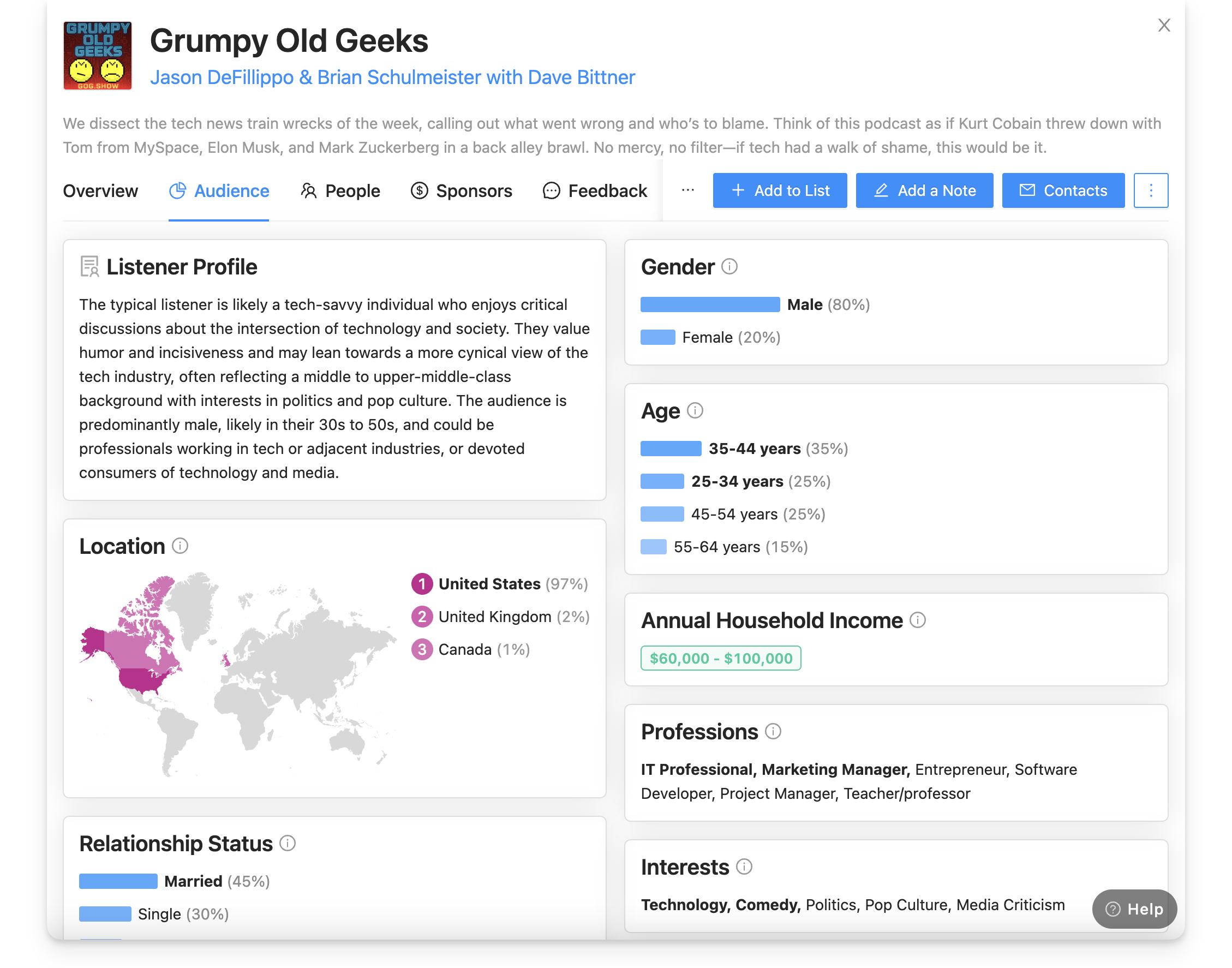
Explore competitor content strategies
It's worth doing some competition analysis to identify the topics other podcasts in your client's industry have covered—and what they've missed. This is where Rephonic’s episode transcripts and summaries make all the difference.
Find the Latest Episode section and select 'More Episodes' to open a side box displaying episode summaries, beginning with the most recent. Scroll through the episode boxes or use the top search bar to locate episodes that mention a particular topic.
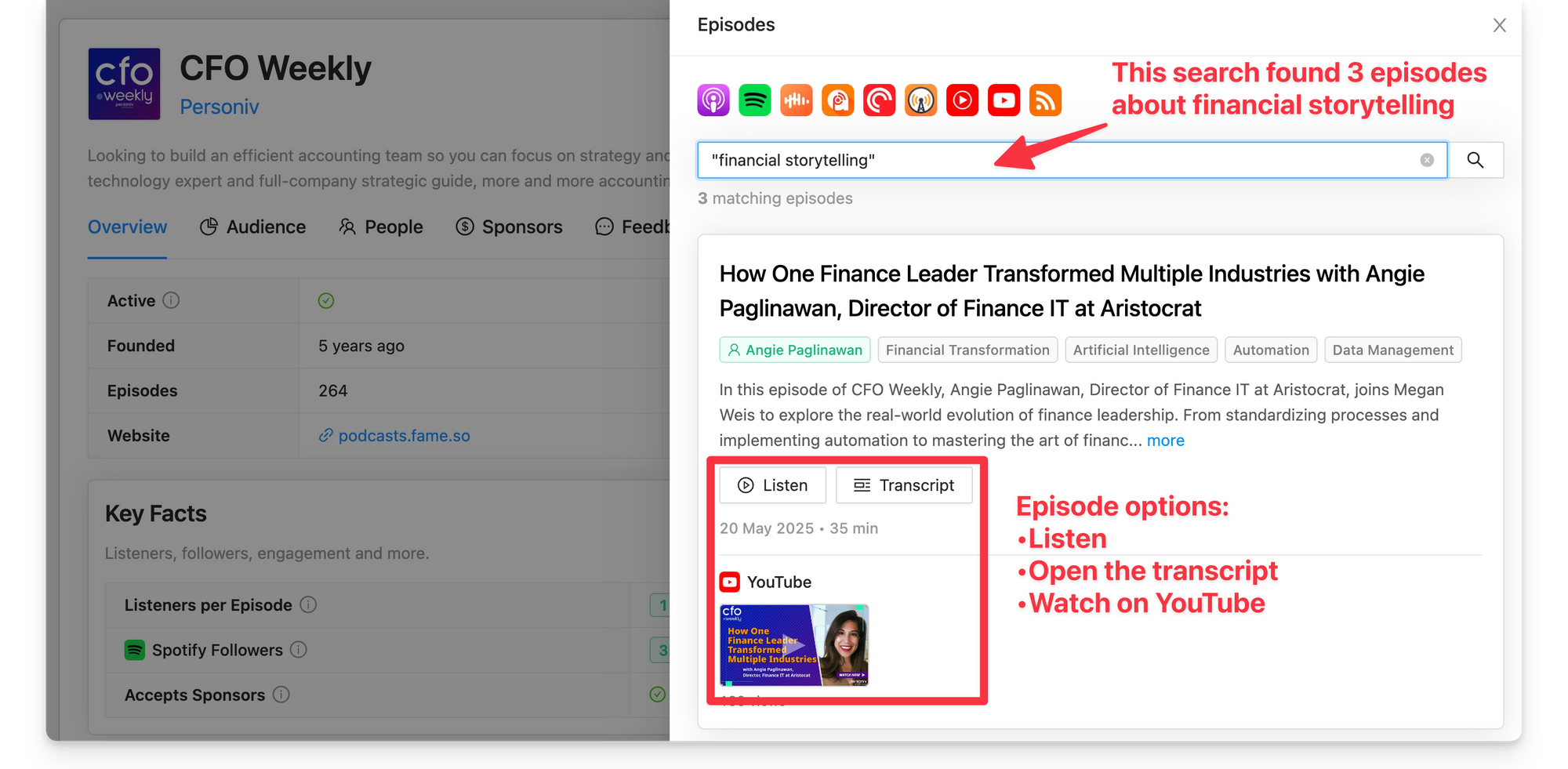
Alternatively, select an episode and search it for a particular topic to see what the guest (or host) is saying. Understanding what's been covered can help your client to fill in the gaps in their own podcast or in guest interviews with other podcasters.
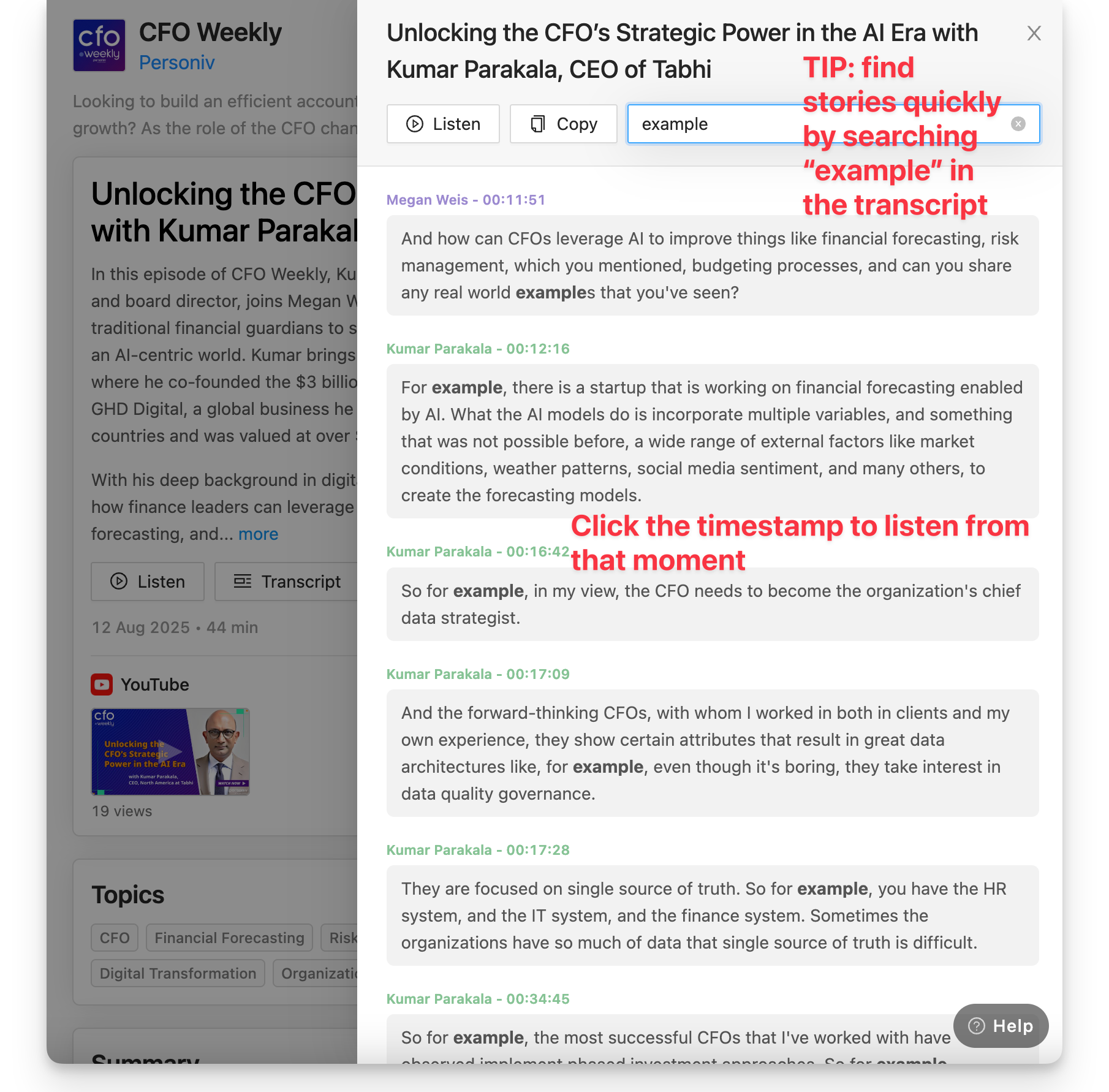
How podcast agencies refine podcasts using Rephonic
- View related podcasts to make sure it's in the right ecosystem
- Compare listener numbers
- Check the feedback tab for common themes
View related podcasts to make sure it's in the right ecosystem
Once your client's podcast is live, keep checking it stays aligned with their original goals by checking the podcast against Rephonic's list of Related Podcasts.
If the related shows are in the same space—i.e., covering similar themes, speaking to the same type of listener, or appealing to the same demographics—it’s a sign the podcast is attracting the intended audience and staying on track with its goals.
However, that same data may also highlight when the podcast is drifting off course.
We're [also] using Rephonic to help illustrate how the choices that they have made have pulled them away from the goals that they wanted to achieve...[and how they've] created an audience over here, not the audience they were looking for.
Richard Fawal
You might find the Related list is filled with shows outside the intended topic area or ones that appeal to a completely different listener base. Such shows can be a red flag, signaling that your client's content, tone, or positioning no longer align with the original goals.
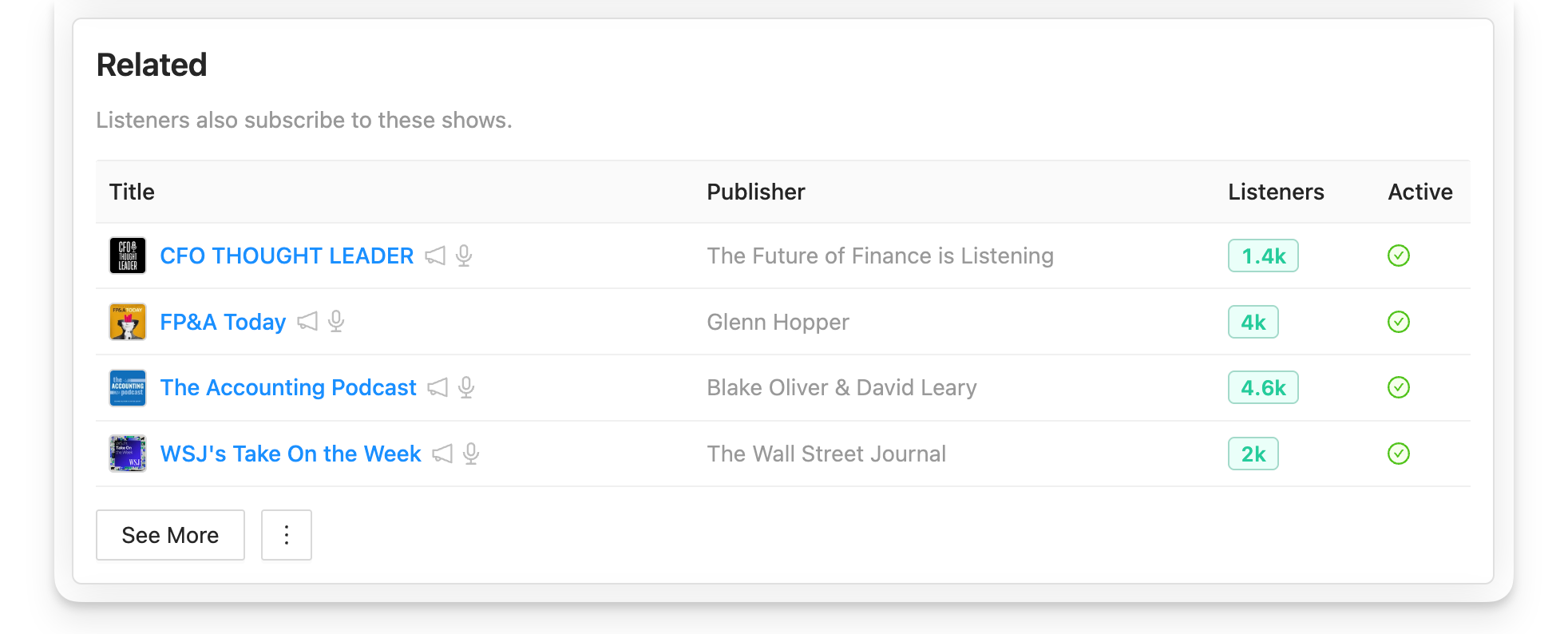
Compare listener numbers
Comparing listener numbers puts your client’s reach into perspective.
For example, you can:
- Check related podcasts to see how their podcast numbers compare to others of a similar age and audience.
- Look at the listener numbers of their direct competitors
- View high-performing aspirational shows—ones they’d like to match or learn from
Having that context helps you spot whether the podcast is keeping pace, falling behind, or ready to push for the next level of growth.
Rephonic reveals 'listeners per episode' numbers and 'monthly downloads' on each podcast's Overview tab.
Check the feedback tab for common themes
AI keeps an eye on listener reviews and pulls common themes for Rephonic.
Check the podcast's Feedback tab as a quick way to see if fans are on board with your client's direction. You'll see an overview of the key themes in listeners' comments. Open All Reviews to read the actual texts in Apple Podcasts, Castbox etc.
There's also an engagement score from 0 to 100, showing the podcast's growth in new listener reviews and ratings over the past 180 days. It's a quick indication of an active (keen to comment) or more passive podcast community.
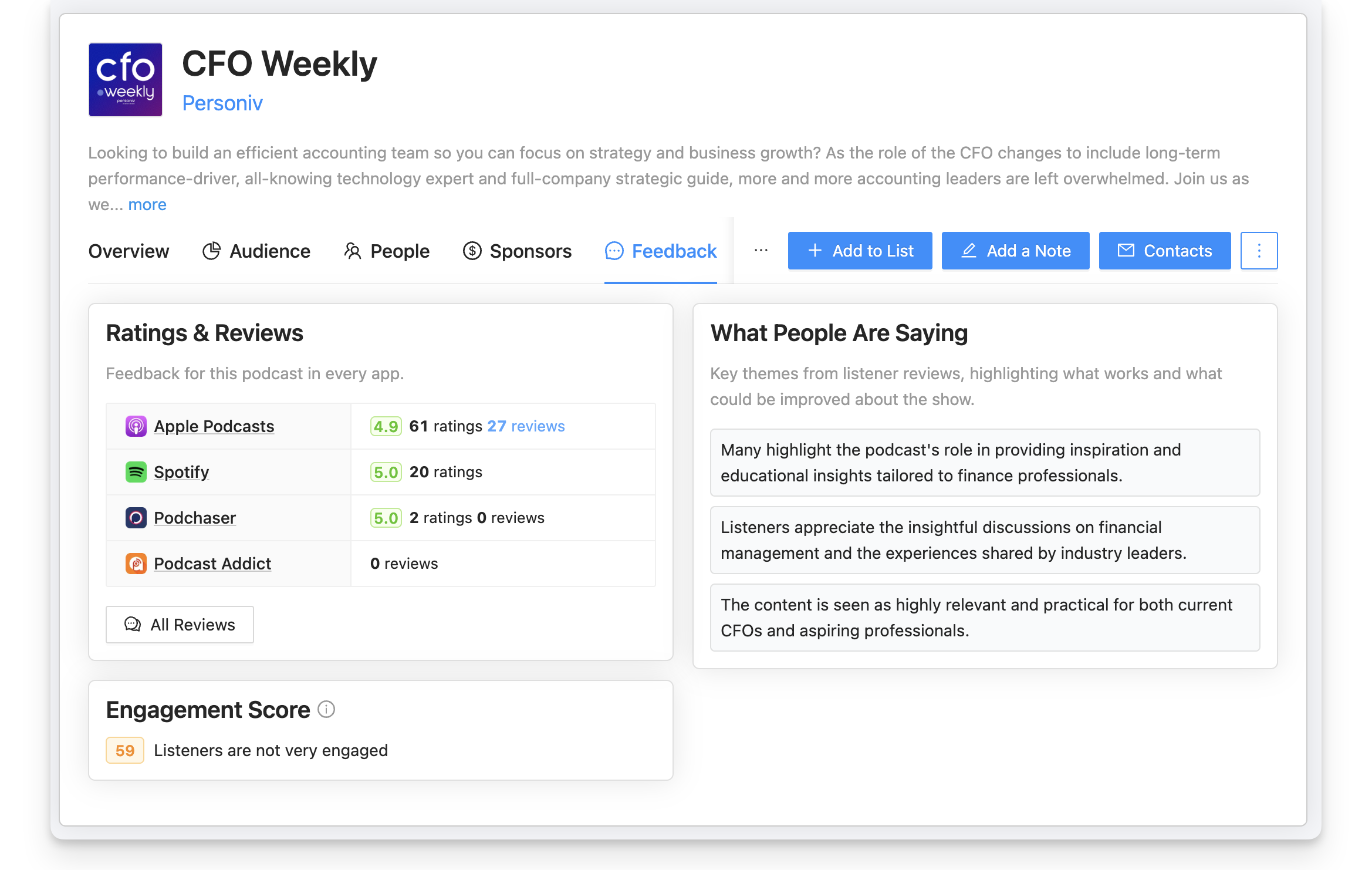
What to look for in listener feedback
Is the podcast a success with subscribers? Does it engage those who listen? Every piece of feedback is revealing and helps identify key trends. Look for:
- Podcast comments: Many comments will be about the overall podcast. These reveal how subscribers perceive the show's identity and whether they're new listeners or long-time fans.
- Episode-specific feedback: These reveal which topics and guests resonated with followers and which ones missed the mark.
- Recurring praise: Consistent positive comments reveal what listeners truly value, helping your client double down on the content and approaches that work best.
- Negative comments: Don't underestimate or dismiss negative comments. They may be the clearest signal that the show is drifting off course or attracting the wrong people, giving you valuable insights as to content or format that's missing the mark.
- Find podcasts that accept guests
- Find shows that cross-promote other shows
How podcast production agencies grow podcast audiences using Rephonic
Find podcasts that accept guests
Booking guest appearances is a powerful podcast marketing tactic to grow your client’s reputation and the podcast audience at the same time. Each guest spot introduces your client’s podcast (and brand) to a new, relevant listener base.
Use Rephonic’s search tool to find podcasts that fit your client’s theme. Apply the Active and Guests filters, then search by Topics or Episodes to uncover shows in their area of expertise. Next, dig deeper into the People tab to explore other interviews and see where your client could add to the discussion.
Finally, compile a list of likely shows (just select Add to list) and email them using our pitch templates or make your own approach using the contact info provided.
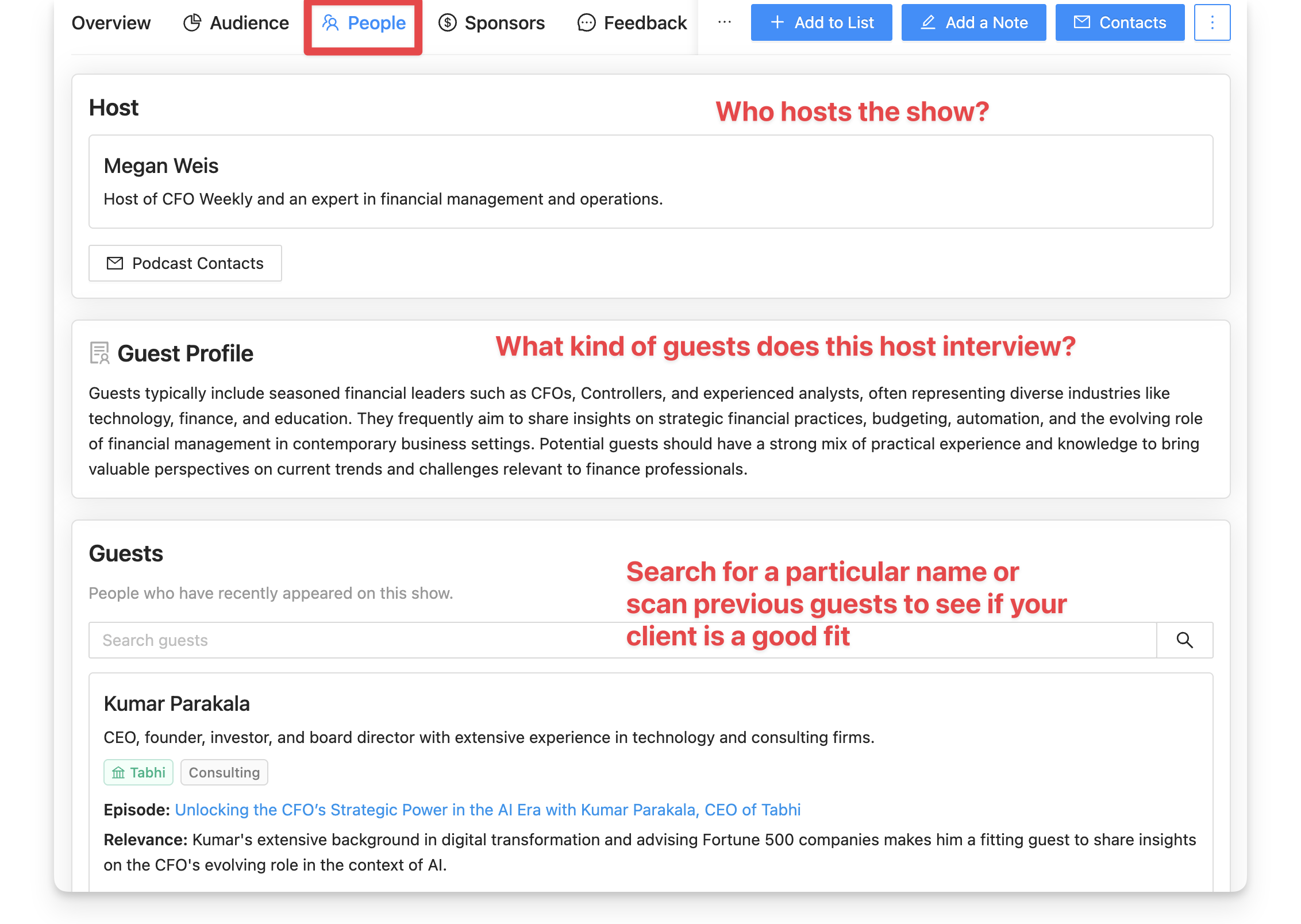
Find shows that cross-promote other shows
Cross-promos usually involve hosts introducing each other’s podcasts to their audiences by running ads and social media campaigns or agreeing to interview each other. They work because each audience trusts its own host and is more likely to check out their recommendations.
Start by doing a topic search using the cross-promos filter to find podcasts with the right focus that actively run trailer swaps, shout-outs, or ad placements with other shows.
When you find a likely podcast, check its Sponsor tab to find two informative lists:
- Sponsors—companies that have advertised on the podcast in the past few years, including links to the episode, a brief analysis and an ad clip.
- Cross-promotions—titles of podcasts recently mentioned on the show, including the context and a link to the episode. Checking these episodes will give you an idea of the sort of cross-promotions the podcast has run in the past.
Double-check the Audience tab to see how well the podcast's audience aligns with your client's target audience and the Feedback tab to understand their engagement level before you make an approach.
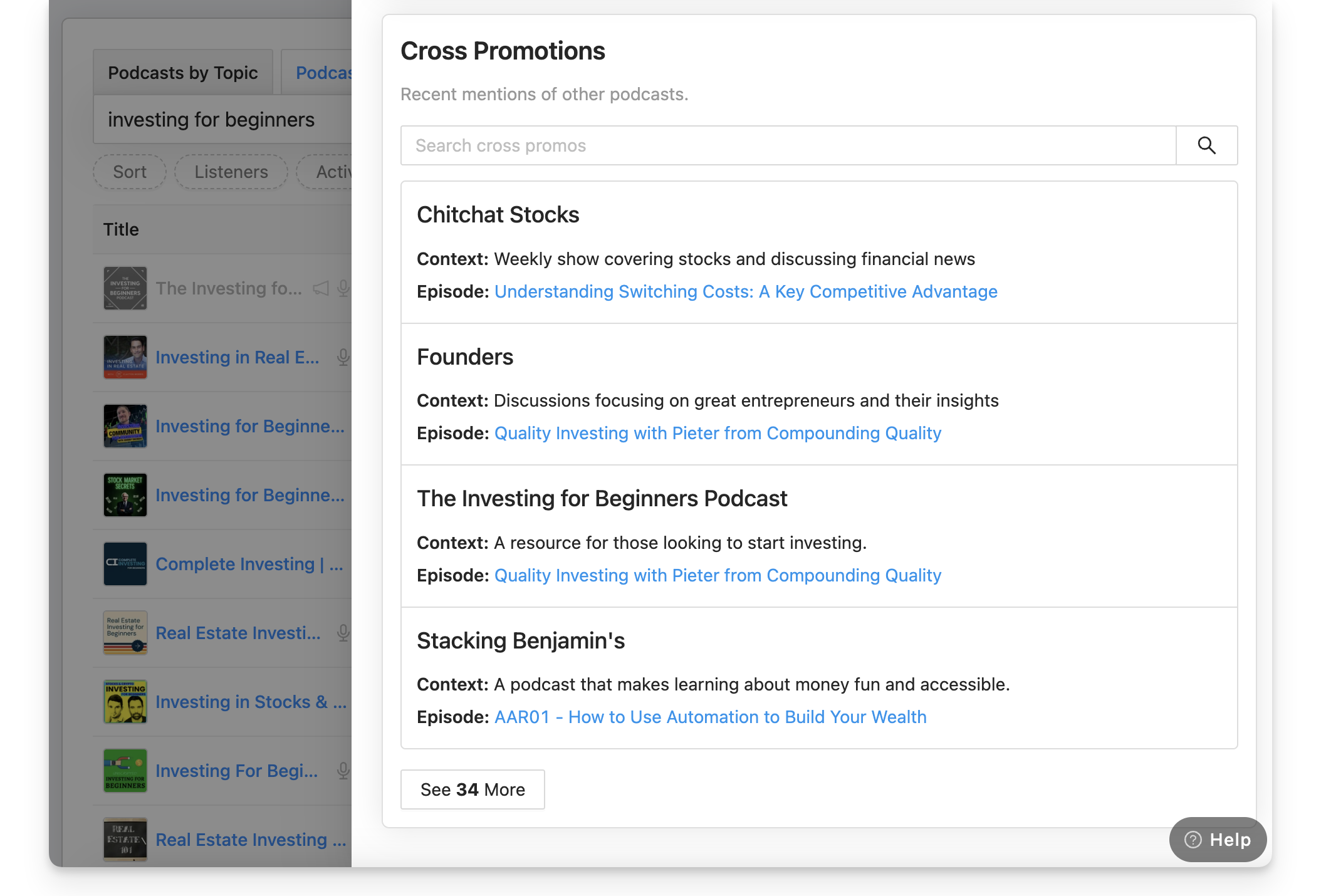
Final thoughts
Are you:
- Developing a brand new podcast for your latest client?
- Refining an existing show to make the podcast stand out?
- Diving into audience development to expand your client's reach or improve podcast growth?
Whatever the aim, Rephonic takes the time and hassle out of podcast research so you can focus on creating shows that grow.
With the right insights at your fingertips, you can refine strategies for the future, uncover opportunities, and deliver real impact for your clients.
Unlock smarter podcast research with Rephonic. Start with a 7-day free trial.
Article credits

Written by Lyn McNamee, podcast-PR writer with four years of experience transforming podcast insights into practical, results-focused playbooks.

Edited by Becca Butcher, marketing specialist who frequently analyzes Rephonic’s data across 3 million podcasts.
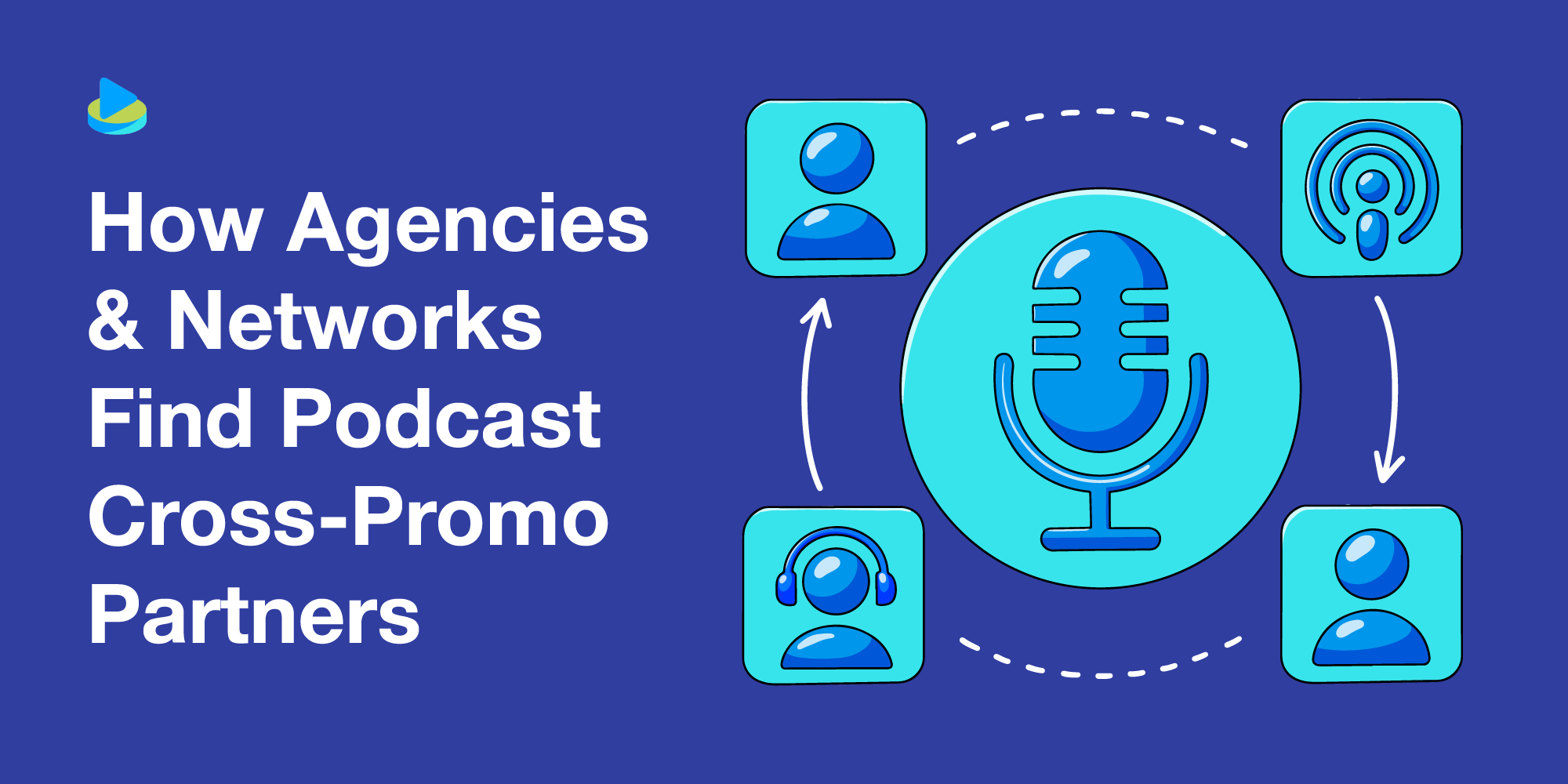
How Agencies & Networks Find Podcast Cross-Promo Partners
Looking to cross-promote a podcast you manage and grow its audience? Rephonic helps podcast agencies and networks find the right shows to partner with.
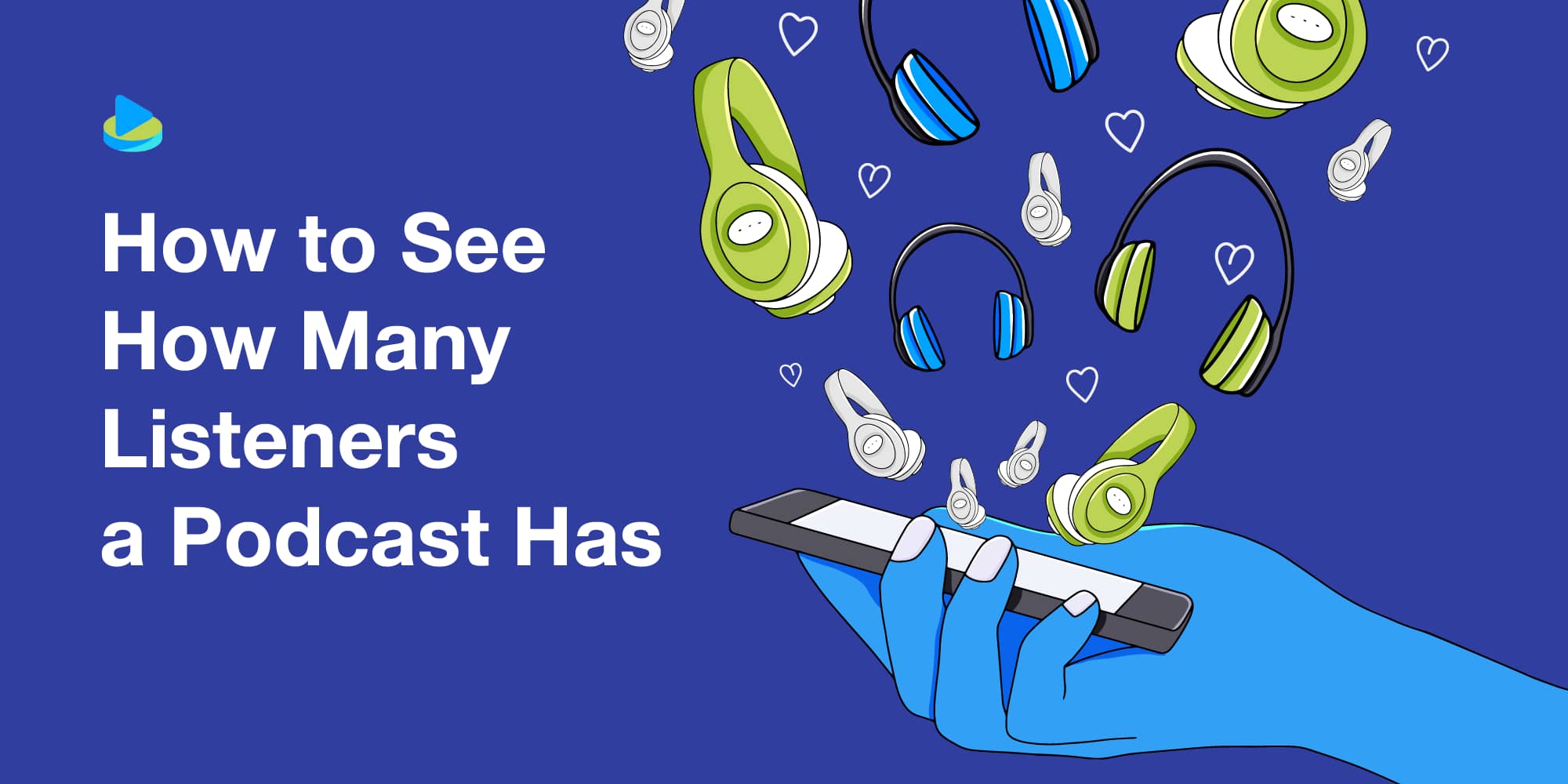
How to See How Many Listeners a Podcast Has (& More Podcast Stats)
If you're planning to pitch yourself (or someone else) as a guest or sponsor, you probably want to know how many people are listening to it.


